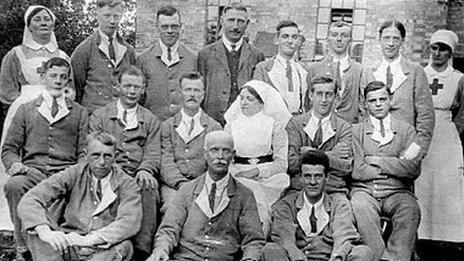World War One messages in station visitors' book published
- Published
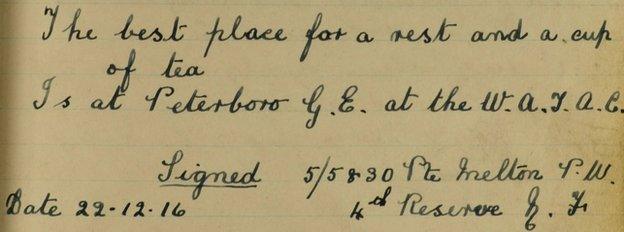
A team of volunteers transcribed the 570 entries in the visitor books
Hundreds of messages written by servicemen as they made their way to fight in World War One have been published for the first time.
Members of the army, navy and Royal Flying Corps often stopped at a now derelict station in Cambridgeshire.
Many wrote in visitor books kept in the tea room at Peterborough East railway station between 1916 and 1917.
A team of volunteers transcribed the 570 entries which have been published online.
Read more on this and other stories from Cambridgeshire.
Richard Hunt, archives manager for Vivacity, which recruited the volunteers, said the messages provided a "unique insight" into the authors' thoughts and feelings.
"Some are simple words of thanks, others talk of love and hope.
"We have found out some of the facts of some of their lives but are appealing for their descendants to come forward to add colour to the stories of these heroes," he said.
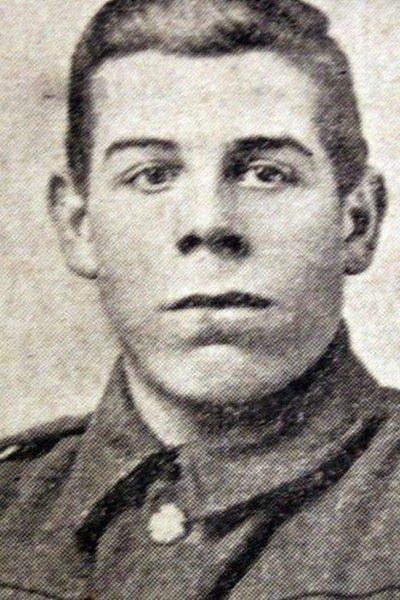
Alfred Davis lost a leg while rescuing a wounded officer at Ypres in May 1915
Army Cadet Miller Jamieson from North Shields stopped at the station in December 1916. He was presumed killed in action in Flanders five months later.
He wrote: "When the war-drum throbs no longer, may I - going North - be here again."
Stretcher-bearer Alfred Davis from Peterborough features in the project, after joining the army aged 18. Researchers found he accidentally killed his friend Corporal Arthur Rawson while the men were sleeping. It is believed a button on his coat caught the trigger of his rifle.
He was discharged form the army after losing a leg while rescuing a wounded officer at Ypres in May 1915 and went on to work as a railway signalman before he died in 1965.
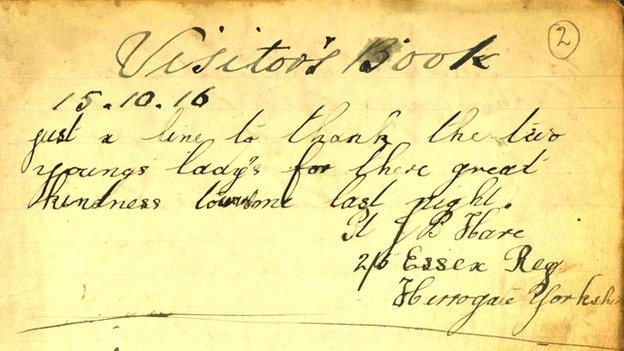
The tea room was started to discourage servicemen from drinking alcohol
The tea room was run by the Peterborough Women's United Total Abstinence Council, a temperance organisation set up in the early 20th Century.
Other stations also had volunteer-run tea stalls but it is unlikely they had visitors' books, the Imperial War Museum said.
The three-year project was funded by a £99,000 grant from the Heritage Lottery Fund.
- Published17 January 2015
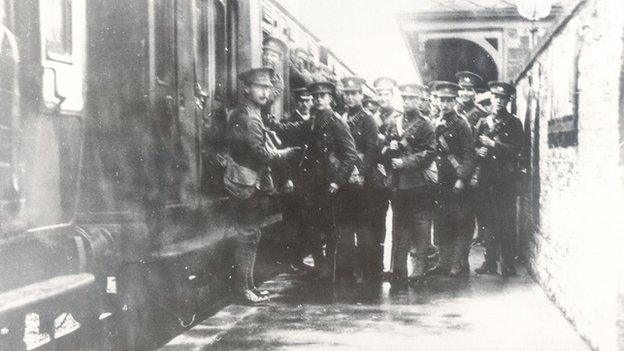
- Published14 November 2014
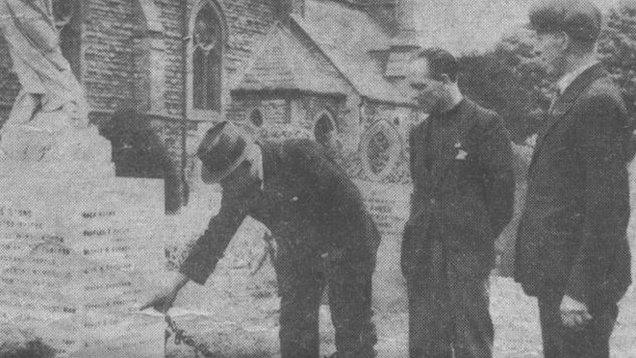
- Published22 July 2014
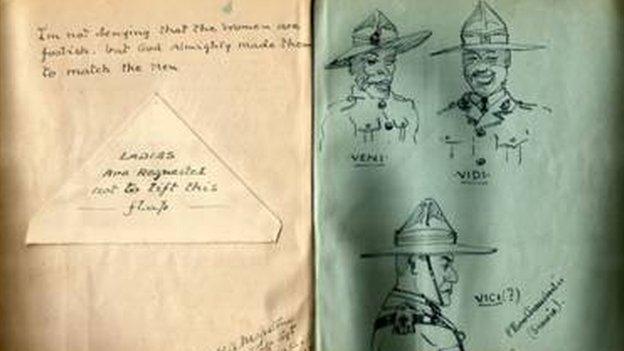
- Published1 January 2013
